
Planetarium:
- ☉ The Sun: Appearances
- ☽ The Moon: Internal
- ☿ Mercury: Communication
- ♀ Venus: Harmony
- ⊕ Earth: Physical
- ♂ Mars: Initiation
- ♃ Jupiter: Prosperity
- ♄ Saturn: Fixation
- ♅ Uranus: Esoteric
- ♆ Neptune: Visionary
- ♇ Pluto: Transformation

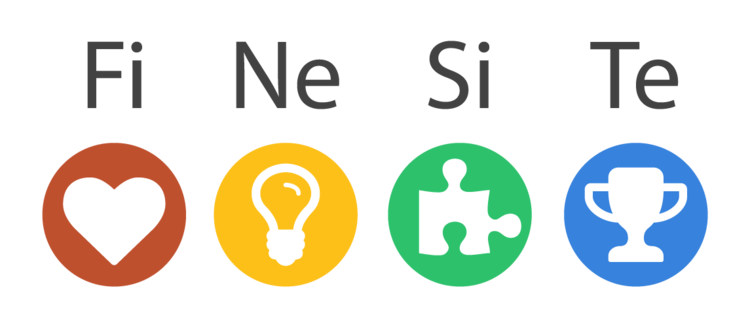
Mediator personalities are true idealists, always looking for the hint of good in even the worst of people and events, searching for ways to make things better. While they may be perceived as calm, reserved, or even shy, Mediators have an inner flame and passion that can truly shine. Comprising just 4% of the population, the risk of feeling misunderstood is unfortunately high for the Mediator personality type – but when they find like-minded people to spend their time with, the harmony they feel will be a fountain of joy and inspiration.
Being a part of the Diplomat Role group, Mediators are guided by their principles, rather than by logic (Analysts), excitement (Explorers), or practicality (Sentinels). When deciding how to move forward, they will look to honor, beauty, morality and virtue – Mediators are led by the purity of their intent, not rewards and punishments. People who share the Mediator personality type are proud of this quality, and rightly so, but not everyone understands the drive behind these feelings, and it can lead to isolation.
At their best, these qualities enable Mediators to communicate deeply with others, easily speaking in metaphors and parables, and understanding and creating symbols to share their ideas. Fantasy worlds in particular fascinate Mediators, more than any other personality type. The strength of their visionary communication style lends itself well to creative works, and it comes as no surprise that many famous Mediators are poets, writers and actors. Understanding themselves and their place in the world is important to Mediators, and they explore these ideas by projecting themselves into their work.
Mediators’ ability with language doesn’t stop with their native tongue, either – as with most people who share the Diplomat personality types, they are considered gifted when it comes to learning a second (or third!) language. Their gift for communication also lends itself well to Mediators’ desire for harmony, a recurring theme with Diplomats, and helps them to move forward as they find their calling.
Unlike their Extraverted cousins though, Mediators will focus their attention on just a few people, a single worthy cause – spread too thinly, they’ll run out of energy, and even become dejected and overwhelmed by all the bad in the world that they can’t fix. This is a sad sight for Mediators’ friends, who will come to depend on their rosy outlook.
If they are not careful, Mediators can lose themselves in their quest for good and neglect the day-to-day upkeep that life demands. Mediators often drift into deep thought, enjoying contemplating the hypothetical and the philosophical more than any other personality type. Left unchecked, Mediators may start to lose touch, withdrawing into “hermit mode”, and it can take a great deal of energy from their friends or partner to bring them back to the real world.
Luckily, like the flowers in spring, Mediator’s affection, creativity, altruism and idealism will always come back, rewarding them and those they love perhaps not with logic and utility, but with a world view that inspires compassion, kindness and beauty wherever they go.
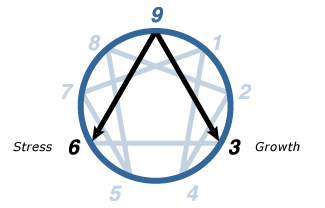
We have called personality type Nine The Peacemaker because no type is more devoted to the quest for internal and external peace for themselves and others. They are typically “spiritual seekers” who have a great yearning for connection with the cosmos, as well as with other people. They work to maintain their peace of mind just as they work to establish peace and harmony in their world. The issues encountered in the Nine are fundamental to all psychological and spiritual work—being awake versus falling asleep to our true nature; presence versus entrancement, openness versus blockage, tension versus relaxation, peace versus pain, union versus separation.
Ironically, for a type so oriented to the spiritual world, Nine is the center of the Instinctive Center, and is the type that is potentially most grounded in the physical world and in their own bodies. The contradiction is resolved when we realize that Nines are either in touch with their instinctive qualities and have tremendous elemental power and personal magnetism, or they are cut off from their instinctual strengths and can be disengaged and remote, even lightweight.
To compensate for being out of touch with their instinctual energies, Nines also retreat into their minds and their emotional fantasies. (This is why Nines can sometimes misidentify themselves as Fives and Sevens, “head types,” or as Twos and Fours, “feeling types.”) Furthermore, when their instinctive energies are out of balance, Nines use these very energies against themselves, damming up their own power so that everything in their psyches becomes static and inert. When their energy is not used, it stagnates like a spring-fed lake that becomes so full that its own weight dams up the springs that feed it. When Nines are in balance with their Instinctive Center and its energy, however, they are like a great river, carrying everything along with it effortlessly.
We have sometimes called the Nine the crown of the Enneagram because it is at the top of the symbol and because it seems to include the whole of it. Nines can have the strength of Eights, the sense of fun and adventure of Sevens, the dutifulness of Sixes, the intellectualism of Fives, the creativity of Fours, the attractiveness of Threes, the generosity of Twos, and the idealism of Ones. However, what they generally do not have is a sense of really inhabiting themselves—a strong sense of their own identity.
Ironically, therefore, the only type the Nine is not like is the Nine itself. Being a separate self, an individual who must assert herself against others, is terrifying to Nines. They would rather melt into someone else or quietly follow their idyllic daydreams.
Red, a nationally known business consultant, comments on this tendency:
“I am aware of focusing on other people, wondering what they are like, how and where they live, etc. In a relationship with others, I often give up my own agenda in favor of the other person’s. I have to be on guard about giving in to other’s demands and discounting my own legitimate needs.”Nines demonstrate the universal temptation to ignore the disturbing aspects of life and to seek some degree of peace and comfort by “numbing out.” They respond to pain and suffering by attempting to live in a state of premature peacefulness, whether it is in a state of false spiritual attainment, or in more gross denial. More than any other type, Nines demonstrate the tendency to run away from the paradoxes and tensions of life by attempting to transcend them or by seeking to find simple and painless solutions to their problems.

Phlegmatics do not act as if they are better than others. They are eager to please, and quick to give in to others rather than asserting their own desires as if they're the most important. They take the path of least resistance whenever possible. They so desperately wish for peace, for everyone to get along, and to avoid conflict at all costs.
Conflict terrifies them. They do not start it (except perhaps in extreme circumstances), or provoke it, and try to defuse it when it comes up. When forced into an argument, they get very upset and distressed, seeking escape rather than victory. If confronted, they are likely to admit that they are in the wrong in order to prevent hostilities.
They don't believe that they know best. They have no desire to be a 'winner'; they only wish for peace. They are well-behaved; rebelling against established rules would feel deeply uncomfortable to them. They're the sort who'd say, worriedly, 'should we really be doing this?' or 'we might get in trouble!'.
They really, really do not wish to be a bother to others, and always put others first. This is due to a deep-rooted unease about asserting themselves rather than a lack of confidence, or a conscious desire to be a 'nice person'.
They are quick to apologise for any mistakes that they may have made, and will sacrifice their own happiness to ensure that others are happy. They are empathetic, and acutely aware of the feelings of those that they are interacting with, as they do not wish to hurt these feelings. They have tremendous difficulty saying no, and will go along with things that they dislike to make others happy.
They are extremely trustworthy; if they make a promise, it's very likely that they will keep it. They're terrified of doing things wrong. They will blame themselves if mistakes are made, even if it was someone else's fault, just to make others feel better and more at ease. They try and word things in a way that is not offensive to others. The will be more supportive than critical.
They'll defer to others to make choices, and will feel upset and pressured if they have to make a decision themselves; this comes from their inability to see themselves in a 'leader' role. They are natural followers, and work best when they are told what to do.
Their language is generally full of uncertain phrases such as 'I think', 'maybe', 'perhaps', 'or something'. Compare "maybe you could do X, or something?" to "do X" or "you should do X". Rather than saying or doing the wrong thing, they'll say or do nothing at all.
Obstacles that get in the way of their steady path will cause them to halt and fumble around, not sure what to do. They're more likely to travel around than through it; their path is easily changed by others.
Phlegmatics are introverted, and enjoy time alone. However, they are much 'nicer' and more friendly and social than the melancholic, as they're unburdened by 'perfectionism' and as such do not judge others. They enjoy spending time with friends, and are very loyal to these friends, sticking with them through thick and thin, even through abuse. This is because they put others first, and will not leave another even if THEY want to because the other person may not want them to leave.
They are almost immune to anger. They have extremely long fuses, and will only snap after a long period of prolonged and persistent abuse. Even then, they're more likely to retreat within themselves and cry than to try to harm another. They like calm and steady lives, free of surprises. They can be relatively confident in familiar situations - if not necessarily assertive - but panic when placed in new ones. They do not seek thrills, and enjoy predictable, quiet, ritualistic lifestyles.
They are very quiet, and do not share their own inner thoughts readily, as they fear judgement and don't wish to bother others by waffling on about themselves. They are however excellent and attentive listeners, who will quietly and politely take in and absorb the conversations of their friends. They will always pay attention, and will offer supportive feedback rather than criticism or advice. They'd never say things like 'bored now', as if it's the duty of others to entertain them.
Since they hate to offend or hurt others, they generally don't ever resort to aggressive insults or attacks. Belittling or hurting another makes them feel bad, not 'powerful and in control' or amused, so they'll worry about having done this accidentally. They could be described as 'nice guys/girls' or, more horribly, 'doormats' by those with different temperaments.
They barely express emotion at all. While the sanguine might whoop and cheer and jump for joy at the slightest provocation, phlegmatics are unlikely to express more than a smile or a frown. Their emotions happen mainly internally. They lack 'passion', as their emotions are mostly internal. They often rely on others ordering them to do things to get motivation.
In our distant past, the phlegmatic members of a pack might have been the obedient followers who'd get much of the actual work done at the command of their superiors. They may not stand out, but without them, nothing would work. They are the cooks, the cleaners, the quiet office drones, the redshirts, the white mages.
Continue reading about the Four Humours →


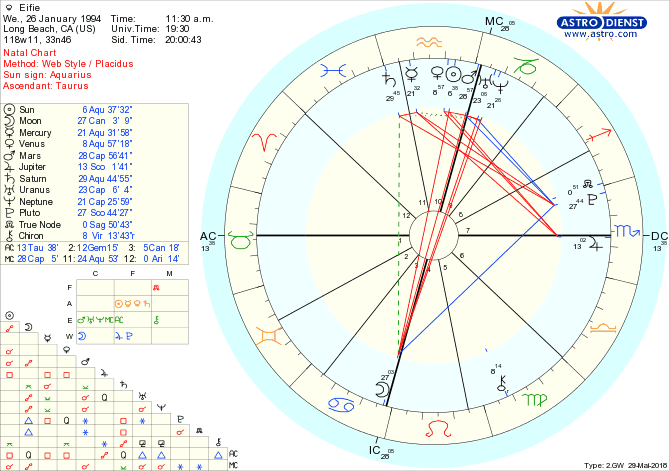



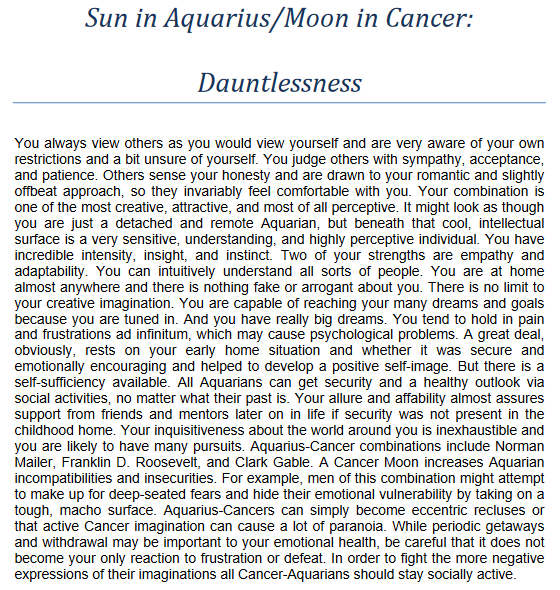
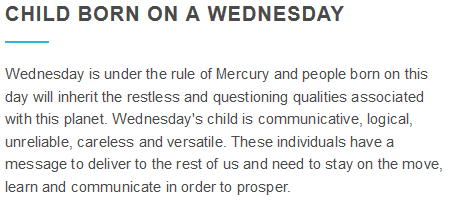
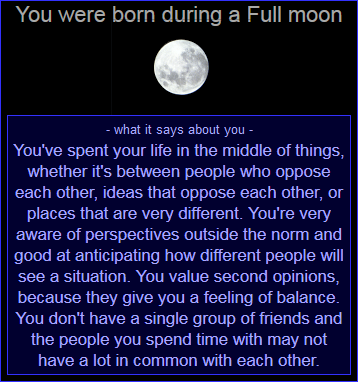
Chakras are centers of energy, located on the midline of the body. There are seven of them, and they govern our psychological properties. The chakras located on the lower part of our body are our instinctual side, the highest ones our mental side.
Chakras on the midline of the body The chakras can have various levels of activity. When they're "open," they're considered operative in a normal fashion.
Ideally, all chakras would contribute to our being. Our instincts would work together with our feelings and thinking. However, this is usually not the case. Some chakras are not open enough (being under-active), and to compensate, other chakras are over-active. The ideal state is where the chakras are balanced. To find out what the state of your chakras is, do the chakra test.
There exist lots of techniques to balance the chakras. Mostly techniques to open chakras are used. It makes no sense to try to make over-active chakras less active, as they are compensating for other chakras. To restore the compensation they'd be over-active again in no time. To stop them from compensating, the chakras they are compensating for must be opened. See the techniques to open chakras.
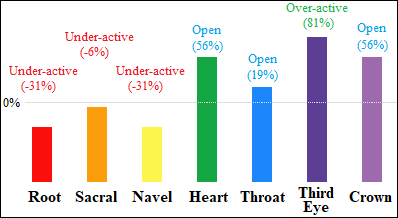
The Root chakra is about being physically there and feeling at home in situations. If it is open, you feel grounded, stable and secure. You don't unnecessarily distrust people. You feel present in the here and now and connected to your physical body. You feel you have sufficient territory.
If you tend to be fearful or nervous, your Root chakra is probably under-active. You'd easily feel unwelcome.
If this chakra is over-active, you may be very materialistic and greedy. You're probably obsessed with being secure and resist change.
The Sacral chakra is about feeling and sexuality. When it is open, your feelings flow freely, and are expressed without you being over-emotional. You are open to intimacy and you can be passionate and lively. You have no problems dealing with your sexuality.
If you tend to be stiff and unemotional or have a "poker face," the Sacral chakra is under-active. You're not very open to people.
If this chakra is over-active, you tend to be emotional all the time. You'll feel emotionally attached to people and you can be very sexual.
The Navel chakra is about asserting yourself in a group. When it is open, you feel in control and you have sufficient self esteem.
When the Navel chakra is under-active, you tend to be passive and indecisive. You're probably timid and don't get what you want.
If this chakra is over-active, you are domineering and probably even aggressive.
The Heart chakra is about love, kindness and affection. When it is open, you are compassionate and friendly, and you work at harmonious relationships.
When your Heart chakra is under-active, you are cold and distant.
If this chakra is over-active, you are suffocating people with your love and your love probably has quite selfish reasons.
The Throat chakra is about self-expression and talking. When it is open, you have no problems expressing yourself, and you might be doing so as an artist.
When this chakra is under-active, you tend not to speak much, and you probably are introverted and shy. Not speaking the truth may block this chakra.
If this chakra is over-active, you tend to speak too much, usually to domineer and keep people at a distance. You're a bad listener if this is the case.
The Third Eye (or "Pineal") chakra is about insight and visualization. When it is open, you have a good intuition. You may tend to fantasize.
If it is under-active, you're not very good at thinking for yourself, and you may tend to rely on authorities. You may be rigid in your thinking, relying on beliefs too much. You might even get confused easily.
If this chakra is over-active, you may live in a world of fantasy too much. In excessive cases halucinations are possible.
The Crown chakra is about wisdom and being one with the world. When this chakra is open, you are unprejudiced and quite aware of the world and yourself.
If it is under-active, you're not very aware of spirituality. You're probably quite rigid in your thinking.
If this chakra is over-active, you are probably intellectualizing things too much. You may be addicted to spirituality and are probably ignoring your bodily needs.

A lawful good character acts as a good person is expected or required to act. He combines a commitment to oppose evil with the discipline to fight relentlessly. He tells the truth, keeps his word, helps those in need, and speaks out against injustice. A lawful good character hates to see the guilty go unpunished. Lawful good is the best alignment you can be because it combines honor and compassion. Lawful good can be a dangerous alignment when it restricts freedom and criminalizes self-interest.
While strict in their prosecution of law and order, characters of lawful good alignment follow these precepts to improve the common weal. Certain freedoms must, of course, be sacrificed in order to bring order; but truth is of highest value, and life and beauty of great importance. The benefits of this society are to be brought to all. Creatures of lawful good alignment view the cosmos with varying degrees of lawfulness or desire for good. The are convinced that order and law are absolutely necessary to assure good, and that good is best defined as whatever brings the most benefit to the greater number of decent, thinking creatures and the least woe to the rest.
Characters of this alignment believe that an orderly, strong society with a well-organized government can work to make life better for the majority of the people. To ensure the quality of life, laws must be created and obeyed. When people respect the laws and try to help one another, society as a whole prospers. These characters strive for those things that will bring the greatest benefit to the most people and cause the least harm.
These characters have a strong moral character. Truth, honor, and the welfare of others is all-important. They are convinced that order and laws are absolutely necessary to assure that goodness prevails. Lawful good beings will not want to lie or cheat anyone, good or evil. They will not stand for treachery and will not let obviously dishonorable people use their own honor against them, if they can help it. They will obey the laws and customs of the area that they are in, but will attempt to find legal loopholes to disobey a law which is clearly evil or unjust.
Lawful good characters are group and order oriented, and will cooperate with authority in all cases to promote the common weal. Not all lawful good beings view the cosmos with an equal desire for lawfulness and goodness, so there is no such thing as a perfectly balanced "lawful good" attitude (nor a perfectly balanced attitude for any other alignment, for that matter). In general, however, a lawful good character promotes the ideals and rights of the majority over those of the individual (and this includes himself as well as others) and upholds the rights of the weak and oppressed members of society, who should be allowed to reap society's benefits with equanimity. The lawful good being feels this is the best way that all members of society can enjoy the rights of existence together. Life is important to the lawful good being, but life is not exclusive of order, and vice versa.
Lawful good can appear to be a difficult alignment to uphold, but it must be remembered that lawful good characters are not necessarily naive or unrealistic. At the heart of a lawful good alignment is the belief in a system of laws that promotes the welfare of all members of a society, ensures their safety, and guarantees justice. So long as the laws are just and applied fairly to all people, it doesn't matter to the lawful good character whether they originate from a democracy or a dictator. Though all lawful good systems adhere to the same general principles, specific laws may be different. One society may allow a wife to have two husbands, another may enforce strict monogamy. Gambling may be tolerated in one system, forbidden in another. A lawful good character respects the laws of other lawful good cultures and will not seek to impose his own values on their citizens.
However, a lawful good character will not honor a law that runs contrary to his alignment. A government may believe that unregulated gambling provides a harmless diversion, but a lawful good character may determine that the policy has resulted in devastating poverty and despair. In this character's mind, the government is guilty of a lawless act by promoting an exploitative and destructive enterprise. In response, he may encourage citizens to refrain from gambling, or he may work to change the law. Particularly abhorrent practices, such as slavery and torture, may force the lawful good character to take direct action. It doesn't matter if these practices are culturally acceptable or sanctioned by well-meaning officials. The lawful good character's sense of justice compels him to intervene and alleviate as much suffering as he can. Note, though, that time constraints, inadequate resources, and other commitments may limit his involvement. While a lawful good character might wish for a cultural revolution in a society that tolerates cannibalism, he may have to content himself with rescuing a few victims before circumstances force him to leave the area.
When will a lawful good character take a life? A lawful good being kills whenever necessary to promote the greater good, or to protect himself, his companions, or anyone whom he's vowed to defend. In times of war, he strikes down the enemies of his nation. He does not interfere with a legal execution, so long as the punishment fits the crime. Otherwise, a lawful good character avoids killing whenever possible. He does not kill a person who is merely suspected of a crime, nor does this character necessarily kill someone he perceives to be a threat unless he has tangible evidence or certain knowledge of evildoing. He never kills for treasure or personal gain. He never knowingly kills an innocent being.
A lawful good character will keep his word if he gives it and will never lie. He will never attack an unarmed foe and will never harm an innocent. He will not use torture to extract information or for pleasure. He will never kill for pleasure, only in self-defense or in the defense of others. A lawful good character will never use poison. He will help those in need and he prefers to work with others. He responds well to higher authority, is trustful of organizations, and will always follow the law. He will never betray a family member, comrade, or friend (though he will attempt to bring an immoral or law-breaking friend to justice, in order to rehabilitate that person). Lawful good characters respect the concepts of self-discipline and honor.
Here are some possible adjectives describing lawful good characters: friendly, courteous, sensitive to the feelings of others, scrupulous, honorable, trustworthy, reliable, helpful, loyal, and respectful of "life, love, and the pursuit of happiness."

People with Visual/Spatial intelligence are very aware of their surroundings and are good at remembering images. They have a keen sense of direction and often enjoy maps. They have a sharp sense of space, distance and measurement.
People with Visual intelligence learn well through visual aids such as graphs, diagrams, pictures and colorful displays. They usually enjoy visual arts such as drawing, painting and photography. They can visualize anything related to art, fashion, decoration and culinary design before creating it.
People with Naturalist intelligence have a sensitivity to and appreciation for nature. The Naturalist intelligence focuses on how people relate to their natural surroundings. Naturalists have a special ability to grow plants, vegetables and fruit. They have an affinity for animals and are good at training and understanding them.
Naturalists can easily distinguish patterns in nature. They are aware of and intrigued by weather phenomena. They are good at discovering the wonders of nature. Naturalists love to walk, climb, camp and hike. They enjoy the outdoors. People with Naturalist intelligence are inspired and rejuvenated by nature.
People with intrapersonal intelligence are adept at looking inward and figuring out their own feelings, motivations and goals. They are quintessentially introspective. They analyze themselves and seek understanding. People with intrapersonal intelligence are intuitive and usually introverted. They learn independently and through reflection.
Philosophy, psychology and theology are often of interest to people with intrapersonal intelligence. They enjoy journaling because it helps them learn about themselves. They are also good at helping others understand themselves. They are able to predict the reactions of themselves and others.
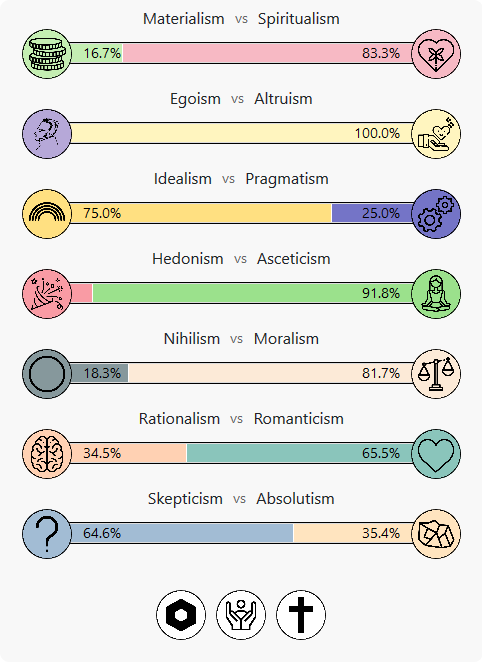
Metaphysical: How you view reality.
Materialism (All of reality is physical and material) vs. Spiritualism (Some of reality transcends the physical and material)
Societal: Your attitude toward society.
Egoism (The individual is most important) vs. Altruism (The community is most important)
Decision-making: How you approach decision-making and your actions.
Idealism (The underlying principles are most important) vs. Pragmatism (The results are most important)
Sensuality: How you approach your indulgences.
Hedonism (Pleasure is intrinsically good and should be desired) vs. Asceticism (Abstinence from pleasure in order to discover meaning is most important)
Meaning: Whether you believe in objective meaning.
Nihilism (Neither meaning nor morality are objective) vs. Moralism (Morality and meaning are objective - to some extent)
Values: What you value most.
Rationalism (Intellect and logic) vs. Romanticism (Passions and the heart)
Epistemology: Your attitude towards knowledge.
Skepticism (We can never truly know anything for sure) vs. Absolutism (There are objective truths that can also be understood)
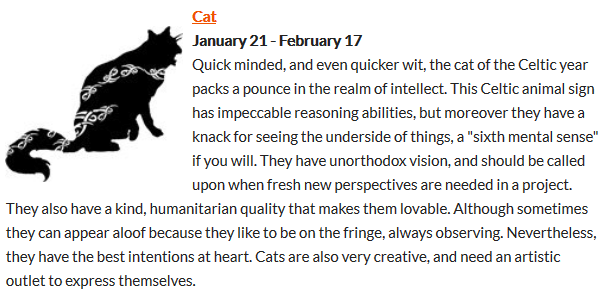
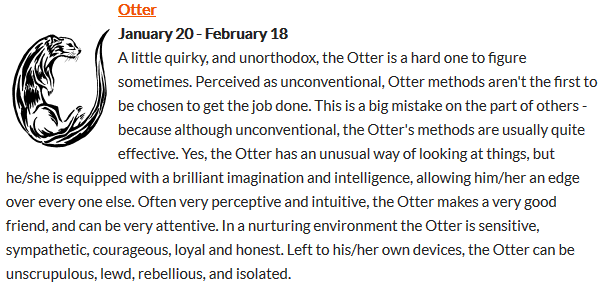
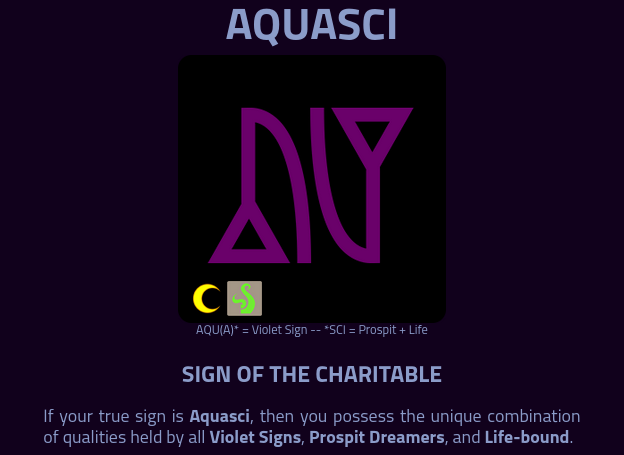


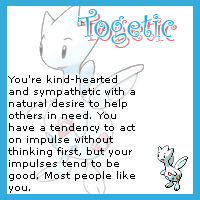
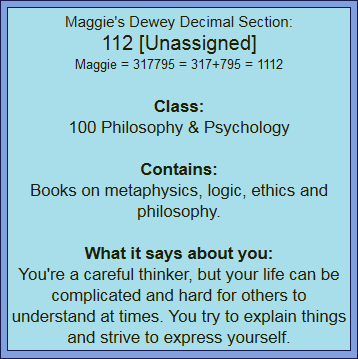
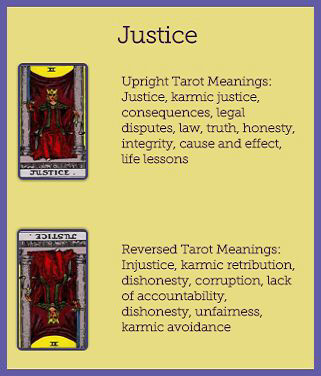
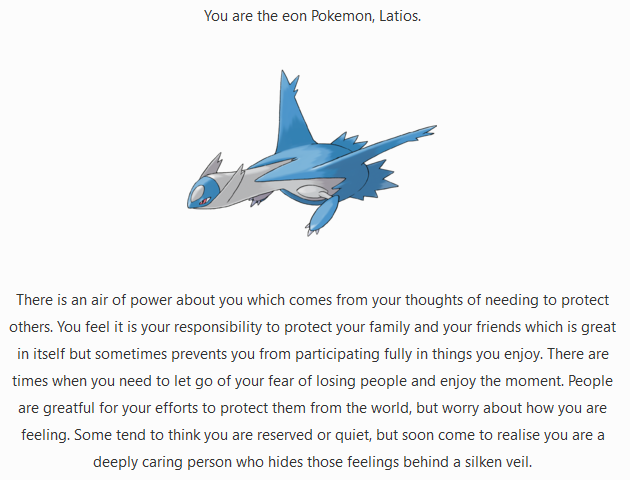
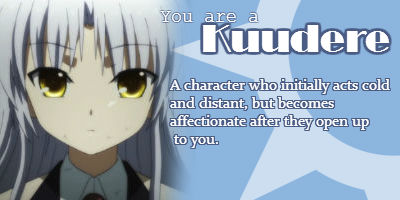
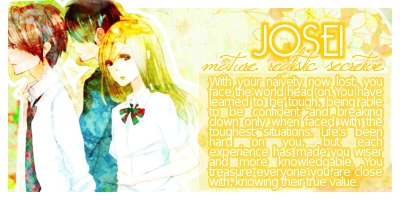
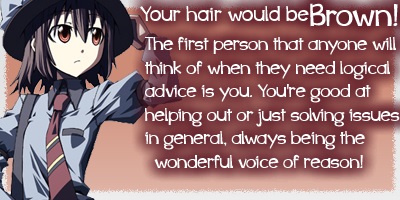
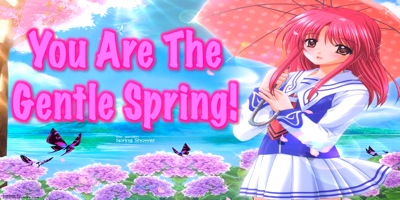
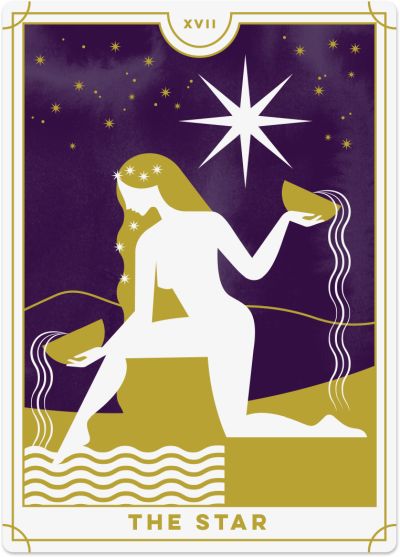
The Star card shows a naked woman kneeling at the edge of a small pool. She holds two containers of water: one in her left hand (the subconscious) and one in her right (the conscious). She pours the water out to nourish the earth and to continue the cycle of fertility, represented by the lush greenery around her. The other container pours the water onto dry land in five rivulets, representing the five senses.
The woman has one foot on the ground, representing her practical abilities and good common sense, and the other foot in the water, representing her intuition and inner resources and listening to her inner voice. She is naked, representing her vulnerability and purity under the vastness of the starry night sky. Behind her shines one large star, representing her core essences, and seven smaller stars, representing the chakras.
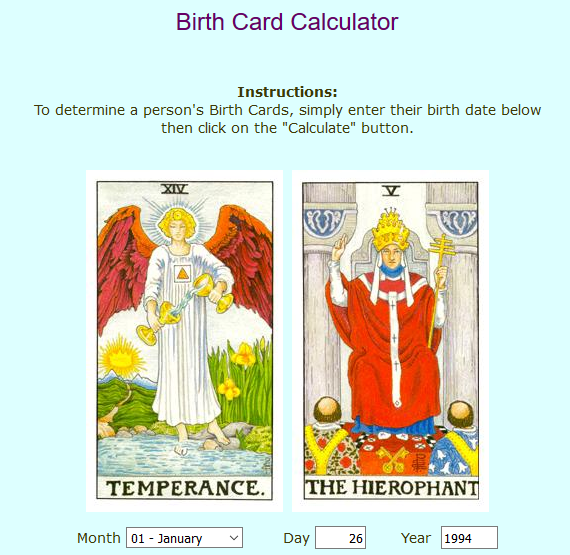

Being happiest when the people and community around you is content, introverted but still involved in community ventures, the value of gentleness, tree wisdom, tree related divination like ogam, the power of touch, rejuvenation when alone, providing wisdom to a community while remaining apart from it.
Read more about Red Panda.
Looking after yourself. Relax. Meditate. The hunting instinct. Getting what you want. Accomplishment. Self-love, worth and protection. Standing up for yourself. Taking time out. Gentle exercise. All forms of therapy. Independence. Intuition. Personal power. Magic.
Read more about Cat.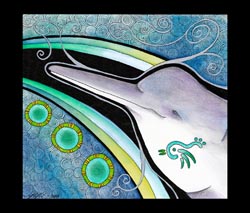
Shape-shifting and shape-shifting mythologies, being extremely and highly sensitive to all forms of energy and energy shifts, being blind to the obvious, but able to perceive the hidden, preferring solitude or loose communities, being used by others, good luck and River Dolphin.
Read more about River Dolphin.
A voraciousness for life, voracity, ferocity and strength, an unwillingness to compromise on personal values, forcing yourself to find nourishment despite downward movements of energy, victory, reflecting people's truths back to them, mastery of illusion and truth, wind and water wisdom, learning how to master your own thought processes, light and the colour spectrum, connection to dragon energy, balancing good and bad qualities, embracing malevolence and benevolence, refusing to conform to labels.
Read more about Dragonfly.